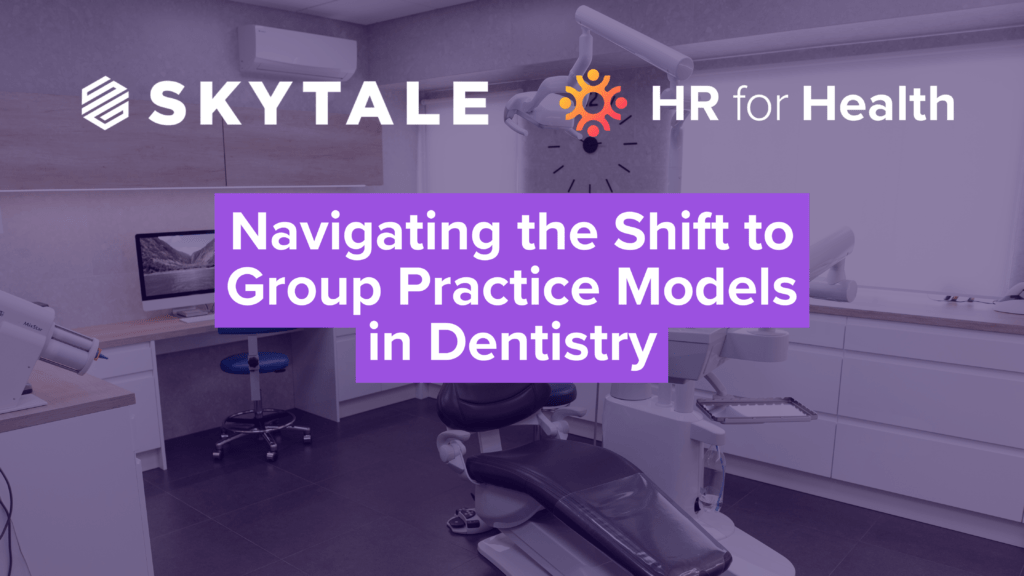The dental industry is evolving rapidly, with a growing trend towards group practice models. For individual practitioners considering joining or forming a dental group, understanding the critical areas of focus is essential for successful integration and long-term growth. This article delves into the top three priorities dental practice owners should concentrate on when transitioning to a group practice model: fostering same-store growth, investing in operations and team development, and leveraging data for better decision-making.
Fostering Same-Store Growth
In the context of group dental practices, same-store growth—measuring revenue growth from existing locations—has become a key metric. This measure is crucial in assessing the health and potential of a dental practice. To drive same-store growth, practice owners need to prioritize enhancing patient experiences and improving operational efficiencies.
Enhancing the patient experience can significantly boost patient satisfaction and loyalty. By emphasizing quality care and understanding individual patient needs, practices can build trust and encourage repeat visits. Offering a comprehensive range of services, such as cosmetic dentistry, orthodontics, and preventive care, under one roof can attract more patients. This not only meets all of a patient’s dental needs in one place but also leverages new partners in the group to capture more opportunities or train teams for better utilization.
Operational efficiency is another vital area. Streamlining processes such as scheduling, billing, and technology within the group can alleviate stress on internal teams.
Implementing expert-backed software and technologies, such as those provided by HR for Health, can automate and enhance these processes, ensuring that the practice operates smoothly with minimal downtime. HR for Health offers robust tools designed specifically for dental practices, helping them manage employment law compliance, streamline HR tasks, properly staff schedules, and improve overall operational efficiency.
Additionally, regular maintenance of equipment and facilities, coupled with efficient staff scheduling, helps maintain high productivity levels. Utilizing historical data can further aid in making informed decisions to minimize downtime and improve overall efficiency.
Investing in Operations and Team Development
For a group practice to thrive, investment in both operational infrastructure and professional development is essential. Upgrading facilities and technology not only improves care quality but also enhances operational efficiency. Modern dental equipment, advanced diagnostic tools, and treatment technologies can streamline procedures, reduce stress on legacy practices, and ultimately improve patient outcomes.
Adopting best-in-class practices, strategies, and processes—borrowed from other practices in the group—can significantly boost operational efficiency and patient experience. Working with partners like Skytale Group, a trusted advisor in management consulting and practice transitions, can provide valuable insights into optimizing operational performance.
Additionally, continuous staff training and professional development are crucial. By providing opportunities for learning and skill enhancement, practices can ensure that their staff remains updated with the latest dental best practices. This investment in education not only improves patient care but also boosts staff morale and retention, making the integration process smoother.
Leadership development is equally important. Cultivating a strong management team capable of driving the practice toward its strategic goals is vital. New leadership programs, in collaboration with group partners, can help empower staff to take on leadership roles, improving overall practice management. Demonstrating the value of new partnerships and the various growth opportunities they offer can ease the transition and foster a culture of growth within the practice.
Leveraging Data for Better Decision-Making
Data-driven decision-making is increasingly becoming a cornerstone of success in dental group practices. Whether operating independently or as part of a larger organization, effectively utilizing data can provide invaluable insights into various aspects of the practice, enabling informed decisions that drive growth and efficiency.
Implementing robust data systems, such as comprehensive practice management software, is essential. This software can integrate scheduling, billing, patient records, and analytics, streamlining operations while providing critical data insights. Understanding the benefits and upgrades available through new data sets can inform future decisions, helping the group track performance metrics more effectively. While practice management software handles these operational aspects, HR for Health’s suite of tools focuses on HR compliance, helping practices manage employee-related processes, stay compliant with regulations, and ultimately enhance overall performance.
Analyzing key performance indicators (KPIs) is another crucial aspect. Financial metrics such as revenue, profit margins, and expenses must be tracked to identify areas for improvement and ensure the practice’s financial health. Patient metrics, including retention rates, satisfaction scores, and treatment acceptance rates, offer insights into the effectiveness of care and marketing strategies. Additionally, operational metrics—such as appointment scheduling efficiency, treatment times, and staff productivity—can help optimize operations and improve overall efficiency.
Strategic planning, driven by data insights, ensures that decisions are evidence-based rather than intuitive. Continuously analyzing data to identify performance gaps and areas for improvement allows for proactive management, enhancing the quality of care and operational efficiency.
Conclusion
Transitioning to or forming a dental group practice offers significant growth opportunities. By focusing on same-store growth, investing in operations and team development, and leveraging data for informed decision-making, dental practice owners can position their practices for sustained success in a competitive market. Embracing these priorities not only enhances patient care and satisfaction but also drives profitability and operational efficiency, ensuring a thriving dental group practice well into the future.
For those looking to streamline their practice management and ensure compliance, HR for Health provides a comprehensive suite of tools tailored specifically for dental practices. And if you’re navigating the complexities of growing and scaling your DSO or exploring M&A options, partnering with Skytale Group can provide the strategic insights and support needed to thrive in a group practice model.


